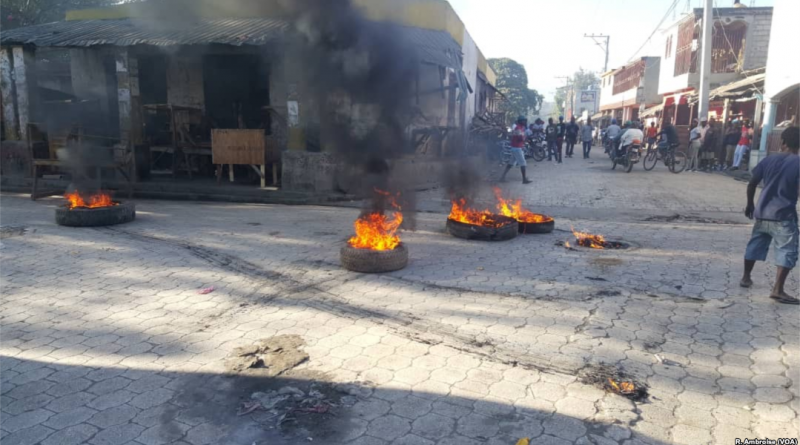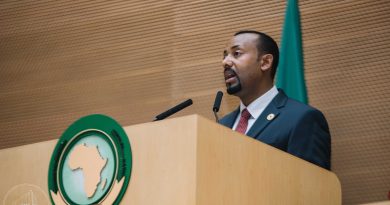Protesters Fight Corruption in Haiti
Morgan Huber
Staff Writer
In Haiti’s capital city of Port-au-Prince, protests and outcry over hard living conditions and corruption persist in the streets among both the rich and the poor. Since chaos first erupted in February, angry citizens have looted stores, homes, ATMs, and police stations, according to BBC News.
Because of these protests, children are unable to attend school while their parents cannot commute to work without the risk of being assaulted with stones or bullets. To combat revolt in the streets, police have retaliated with live ammunition and tear gas. The death toll has reached seven people.
While many citizens have burned vehicles and buildings, others have abstained from the violence. Choosing to wave flags instead of resorting to violence, these protesters have chosen an alternative, more peaceful route to denouncing corruption and promoting a more stable society.
Protesters have attributed their increased frustrations to inflation and federal corruption, following a detrimental government shutdown that lasted for several weeks, as reported by U.S. News & World Report. Over the course of the last 25 years, Venezuela provided oil to the Haiti to support its struggling economy. Despite lenient guidelines and low-interest payments provided by this PeroCaribe Plan, Haiti’s problems persisted.
Haitian President Jovanel Moïse has been the main target of backlash throughout these protests. Citizens of both Haiti and Venezuela believe that Moïse and other government officials were implicated in a conspiracy to steal government-subsidized funds from Venezuela. Because of this, Haiti has not been able to sustain its prosperity and its people.
Allegedly, a total of $4 billion which should have been allocated to rehabilitation projects has gone missing. Citizens demand to know where these funds were placed. By looking at the state of the capital, protesters believe that it has certainly not been invested into infrastructure as promised. Auditors have also noted this corruption, as they have produced a 600-page report and submitted it the country’s Senate on September 27.
Rather than agreeing to resign, the President instead canceled his appearance at an upcoming United Nations conference in order to quell the angry crowds, reports NPR. However, his speech on September 25 was unsuccessful, as protests continue to persist in the capital. Despite uproar throughout the nation, Moïse has refused to leave office, citing his reluctance to “leave the country in the hands of armed gangs and drug traffickers”.
While the people of Port-au-Prince and the nation refuse to cease the riots until funds are properly allocated, citizens also insist there is hope for a peaceful, more prosperous life in the Caribbean state. Haiti is one of the poorest countries in the Western Hemisphere. However, given the current stalemate, work by the country’s Senate may be able to resolve the ongoing conflict and allow the nation to work productively towards a sounder future.


